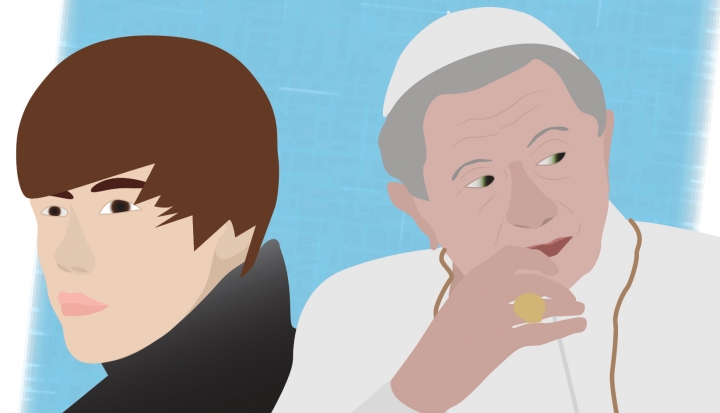Pope Benedict, now up to 2.5 million followers on Twitter (5,000 of them follow his Latin language profile), has again urged Catholics to take to interwebs to spread the good news. "Believers are increasingly aware that, unless the Good News is made known also in the digital world, it may be absent in the experience of many people for whom (social networks are) important," he said in his message for World Communications Day (May 15).
Benedict, of course, is right–but what does it mean to put the voice of the vicar of Christ up against Justin Bieber–who just surpassed Lady Gaga with more than 33,300,000 followers. Both Gaga and the Biebs have more followers than the pope, which is not surprising given the fact that Twitter is one of the main ways celebs build their brands. But one of the undeniable effects of social media is its democratizing effects. If Biebs and Benedict post on the same thing on the same day, who speaks with authority?
Overall, I think it's a good thing that the pope–or better, his communication office–is "out there" on social media, where so many people are. But I wouldn't underestimate the "flattening" of the social media universe, in which the pope becomes one voice among many.
Now, your social media theology question of the day: Can the pope tweet infallibly?
Image by Angela Cox








